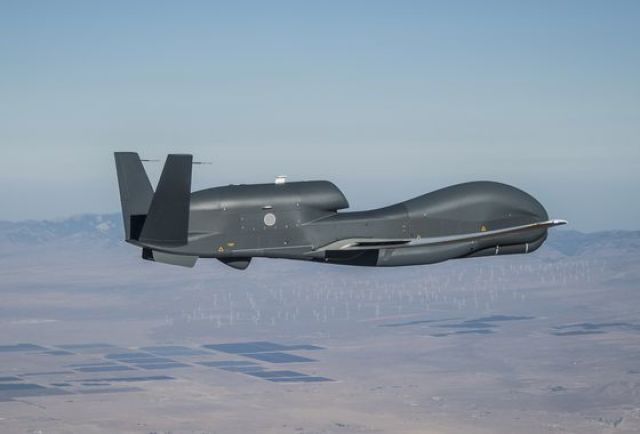TSAMTO, June 28. On June 24, Northrop Grumman Corporation announced the start of flight tests of the second high-altitude UAV of long duration flight RQ-4B "Global Hawk", intended for the Japanese Self-Defense Forces.
As reported by TSAMTO, flight tests of the first RQ-4B "Global Hawk" began on April 15, 2021 at the enterprise in Palmdale (California).
As planned, the unarmed RQ-4B Global Hawk will provide the ability to collect information, surveillance and intelligence around the clock to support the actions of the Japanese Self-Defense Forces to protect borders, track threats and provide humanitarian assistance. After delivery, the RQ-4B Global Hawk UAVs will be integrated with other intelligence assets of the Japan Self-Defense Forces, including ground command and control units.
At the end of 2014, Japan announced the choice of a high-altitude unmanned aerial vehicle of long flight duration RQ-4 "Global Hawk" by Northrop Grumman to equip the country's Self-Defense Forces.
In November 2015, the US State Department approved the potential supply of 3 RQ-4B Block UAVs to Japan under the Foreign Military Sales program.30 (I) Global Hawk with an EISS detection kit, 16 sets of inertial / GPS navigation systems, as well as other contract-related equipment, spare parts and services. The total value of the sale was estimated at $ 1.2 billion.
In October 2017, the US Defense Ministry signed the first contract with Northrop Grumman Aerospace Systems worth $ 130.469 million for the purchase of equipment with long production times for the RQ-4 Block UAV under the Foreign Military Sales program.30 (I) Global Hawk and other systems. In November 2018, another agreement worth $ 489.924 million was signed with Northrop Grumman for the supply of three UAVs. The work should be fully completed by September 1, 2022.
As planned, the delivery of UAVs to the Japanese Self-Defense Forces will begin in 2022.
The UAV will be operated from the Misawa air Base (in the north of the country). In April 2020, Japanese lawmakers passed a law authorizing the creation of an RQ-4 UAV squadron at this base in 2021/22 f. g.
Despite the acquisition of three RQ-4s, Japan is aware of the need for additional HALE-class UAVs to monitor the DPRK and the territory around the remote southwestern islands. To achieve this goal, Japan intends to independently develop a HALE-class device and is exploring opportunities for cooperation with Israel, which, according to Janes World Air Forces, has expressed its readiness to share secret technologies. Meanwhile, Tokyo has also shown interest in the Heron-TP UAV of the MALE class of Israel Aerospace Industries (IAI).

